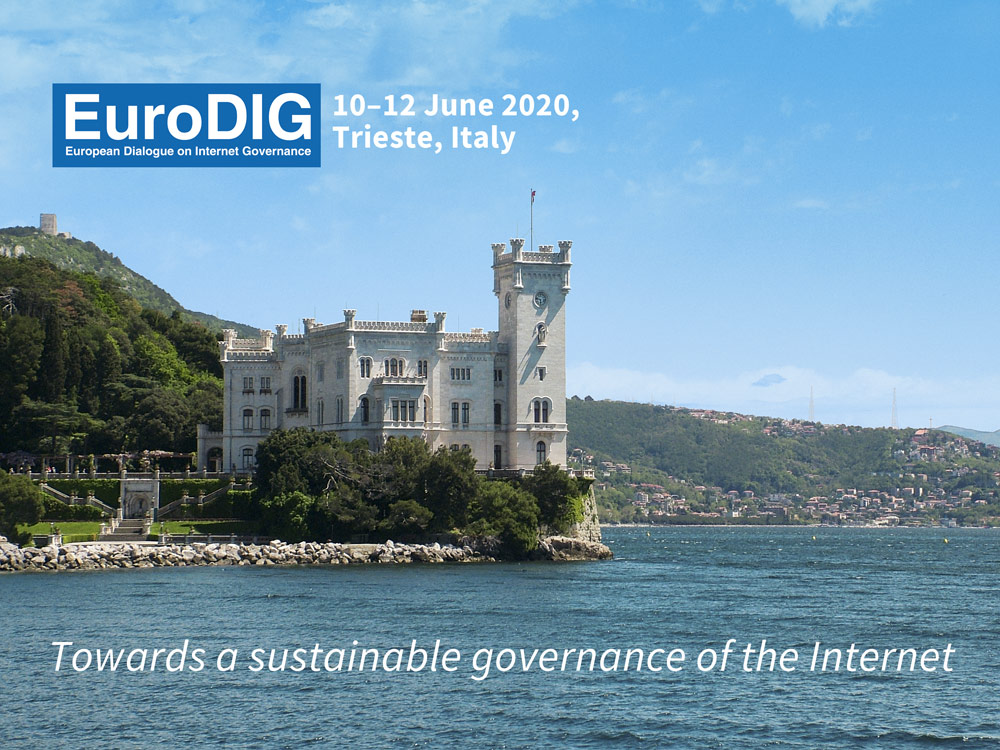Greening internet governance: Environmental sustainability and digital transformation
12 Jun 2020 17:00h - 18:00h
Event report
The session aimed to produce concrete commitments for promoting a sustainable Internet, based on Europe’s commitment to a green future.
It is important to ensure that the ecological imperative is at the heart of EU’s policy-making on sustainable digital development, underlined Mr David Cormand (Member, European Parliament). Cormand stressed that an indicator that measures the environmental impact of digital technologies is necessary for making the right decisions at the regulatory and political levels. The lack of agreed and universal metrics showing the impact of IT was also noted by Mr Ilias Iakovidis (Adviser, Directorate-General for Communications Networks, Content and Technology (DG CONNECT), European Commission (EC)).
The relationship between the Internet and the sustainable development goals (SDGs) is not clear-cut. While 11 SDGs have a positive link with the digital, 5 SDGs have an unclear link, while SDG 12 (Responsible consumption and production) has a negative link. He noted that progress is needed on energy and material efficiency (durability, reparability, and recyclability.) The EC has a three-pronged approach: it can legislate, it can fund, and it can bring partners together. This is what is really needed on the international scene.
Iakovidis highlighted that e-waste is the fastest growing category of waste. Ms Emma Fryer (Associate Director, techUK) noted that data centres are pervasive in our daily lives. As they are electro-intensive, the next step would be to use a combination of fuel cells and battery storages so that they become a prosumer within the electricity grid.
The idea of moving data centres to the Nordic region (because of low temperatures) was dismissed by the panellists for a multitude of reasons: consolidating all data centres into one place would not be conducive to resilience; transporting the data back to other parts of Europe would actually require more energy than processing it where it currently is; it would endanger a country’s digital sovereignty; and running data centres at higher temperatures is now possible.
However, Mr Olivier Vergeynst (Founder, GreenIT Belgium) stated that it is not the data centres that have the biggest impact, but user equipment (smartphones, laptops, television sets, and collected objects). He stressed that buying fewer devices, using them longer, and giving them a second life when they are not used anymore are just some key actions for reducing digital impact.
Mr Chris Adams (Organiser, ClimateAction.tech) noted that it would be a mistake to shift the responsibility onto end users for the carbon footprint of accessing and using the Internet. From a governance point of view, it is easier to incentivise actors, like those that make digital services to accelerate a green decarbonised grid, than to teach hundreds of millions of people how to change the way they use the Internet because it is the biggest machine in the world and hard to understand. We need to make sure that the infrastructure we use is running on green power. Policy, and in particular the policy on spending public money, should be leveraged to speed along a greener Internet.
Mr Beat Estermann (Professor, Bern University of Applied Sciences) noted that digitalisation has so far had a negative net effect on the environment. A reversal of this trend requires concerted action on the international level. International co-ordination is needed the most in: measures for promoting circular economy and sharing environmental data; incentives for reducing environmentally harmful consumption, promoting efficiency, and enhancing digital applications; ensuring transparency regarding environmental costs and materials; and the improvement of data protection through technical measures.
On the importance of local initiatives, Ms Lea Elsemüller (Green Youth Baden-Württemberg) highlighted that global research and development are not detached from the local environment, and that local discussions have an impact on global research. Estermann noted that the involvement of civil society in international dialogues on environmental policy issues should be increased. While the significant role of the local circular economy was underlined, the possibility of a platform that would enable a more automated way of recycling globally was also brought forth.
The speakers underlined that a change in digital business models is crucial. The current business models do not give consumers information on carbon impact their online activity has, and transparent discussions on the carbon footprint of technology are needed. The panellists added that carbon literacy needs to be improved.
By Andrijana Gavrilovic
Related topics
Related event

